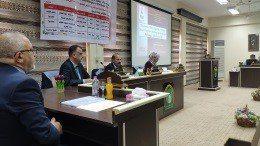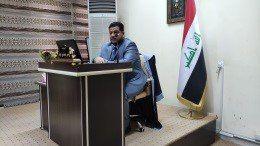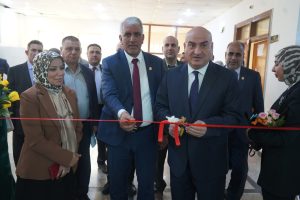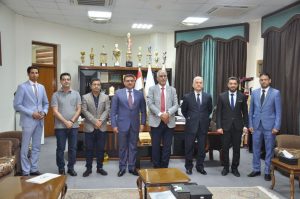The Faculty of Science at Karbala University has discussed the M.A. thesis entitled (Theoretical Verification Using a Solar Lake for Adapting Buildings in the city of Kerbala).
The thesis, submitted by the M.A. student, Yasser Abdel Nour Jabbar, aims at designing a simulation model of the solar lake to understand the thermal and mass transfer that takes place in it so as to check the factors affecting the performance of the solar lake, such as the thickness of the layers to find the appropriate thickness for each layer, and the type of soil to find the best quality of soil that can be used under the solar lake. It also aims at finding the appropriate solar lake area used in the adaptation of buildings.
The study shows that the salty stepped solar lake consists of three layers, the upper layer that is characterized by being homogeneous in salt concentration and temperature. The middle layer has the advantage of being graded in the salt concentration and temperature increasing towards the lower layer which has the highest concentration of salt and homogeneous temperature.
It ends up with certain recommendations. One of them is that the researchers in the field of renewable energy should conduct a practical model for the solar lake in the holy city of Kerbala, especially near Razazah Lake, as it contains high levels of salts such as sodium chloride and potassium chloride and developing a mathematical model to reduce heat losses from the solar lake.
































































